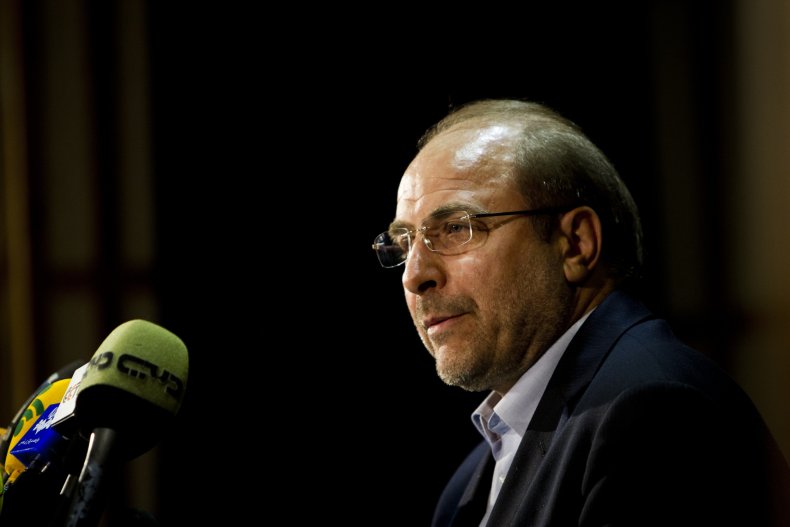Iran Lawmaker Admits Nuclear Expansion Is Leverage for Joe Biden Talks
The Speaker of Iran's parliament has admitted that plans to expand the country's nuclear program—in defiance of international demands—are designed to win Tehran more leverage in talks with President Joe Biden over revival of the Joint Comprehensive Plan of Action nuclear deal.
Mohammad Baqer Qalibaf, a conservative politician, former mayor of Tehran and three-time presidential candidate, said on Friday that the legislation to expand the production of enriched uranium and block international inspectors was a JCPOA "bargaining chip," BBC News Persian reported.
The measures were passed by the conservative-dominated parliament—despite the objections of President Hassan Rouhani and Foreign Minister Javad Zarif—after the assassination of top nuclear scientist Mohsen Fakhrizadeh in November.
Israel is widely believed to have been responsible, though Tehran has accused the U.S. of supporting or approving the operation.
The Iranian parliament ordered the country's atomic agency to enrich uranium to a higher level than previously agreed and to expand enrichment capabilities. The JCPOA limited enrichment to 3.67 percent, enough for civilian power plants.
Under the legislation, uranium enrichment is set to rise to 20 percent—from which it is a relatively short technical step to 90 percent, which can be used to make nuclear weapons.
The parliament also ordered the blocking of International Atomic Energy Agency inspectors from February 21, although Zarif secured a last-minute deal to allow some restricted access for three months.
The legislation was condemned in the U.S. and by the three European signatories of the nuclear deal—Germany, France and the U.K. They have all called on Tehran to reverse these steps and return to full JCPOA compliance, after President Donald Trump exited the deal in 2018.
Qalibaf said on Friday that the measures would benefit Iran in proposed JCPOA talks with Washington, D.C. "This law will help lift sanctions more and will produce power for us," the Speaker said.
"Negotiations are underway now," Qalibaf added, although both sides have denied that discussions have started. "This law is a bargaining chip, creating more opportunities for dialogue and lifting sanctions," he said.
Conservatives in Iran's parliament have been pressuring Rouhani's government over the JCPOA, though Qalibaf said lawmakers were unanimously in support of sanctions relief.
Iranian leaders are demanding that all Trump-era sanctions be lifted before they return to JCPOA compliance. But Biden wants Iran to scale back its nuclear activities in line with the accord before sanctions are eased.
The U.S. and its allies also remain concerned about Iran's ballistic missile program, cyber-attacks and its regional network of proxy forces, which are regularly used to attack American and allied troops and interests.
Iranian conservatives expect their position to be strengthened in June, when Rouhani's term ends and a hardliner will likely take the reins. Among the presidential candidates are several Islamic Revolutionary Guard Corps officers, which could mean more difficult nuclear negotiations for Biden if he cannot revive the JCPOA in Rouhani's final months.


